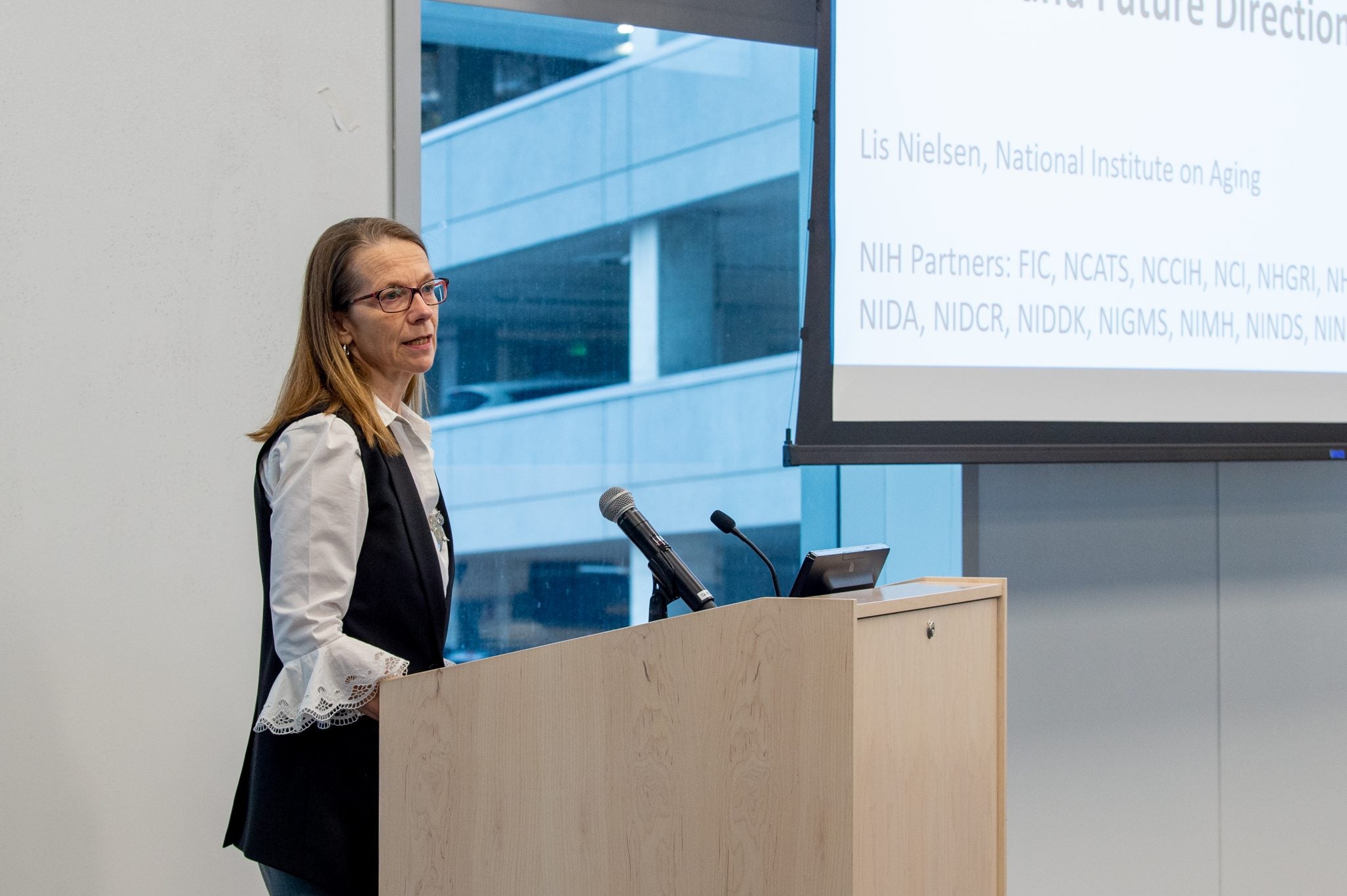CHIBE Hosts 2019 Behavioral Science and Health Symposium
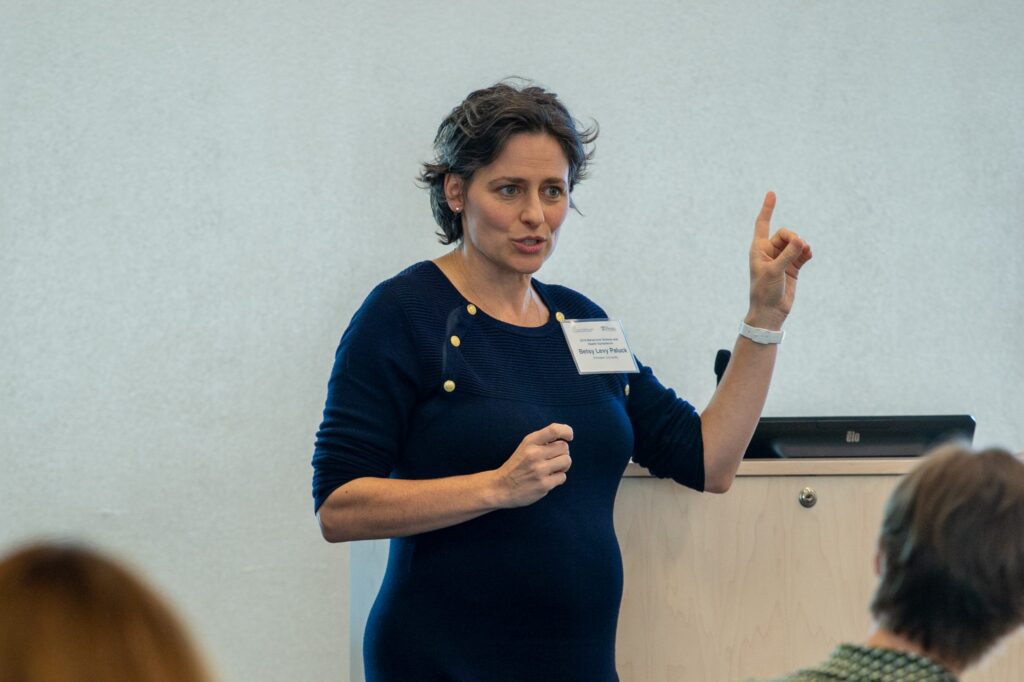
Sleep habits, commitment contracts, food choice, and e-cigarettes were some of the varied topics discussed at the ninth annual Behavioral Science and Health Symposium held at the Quorum in Philadelphia on November 21-22, 2019. (View photos here.)
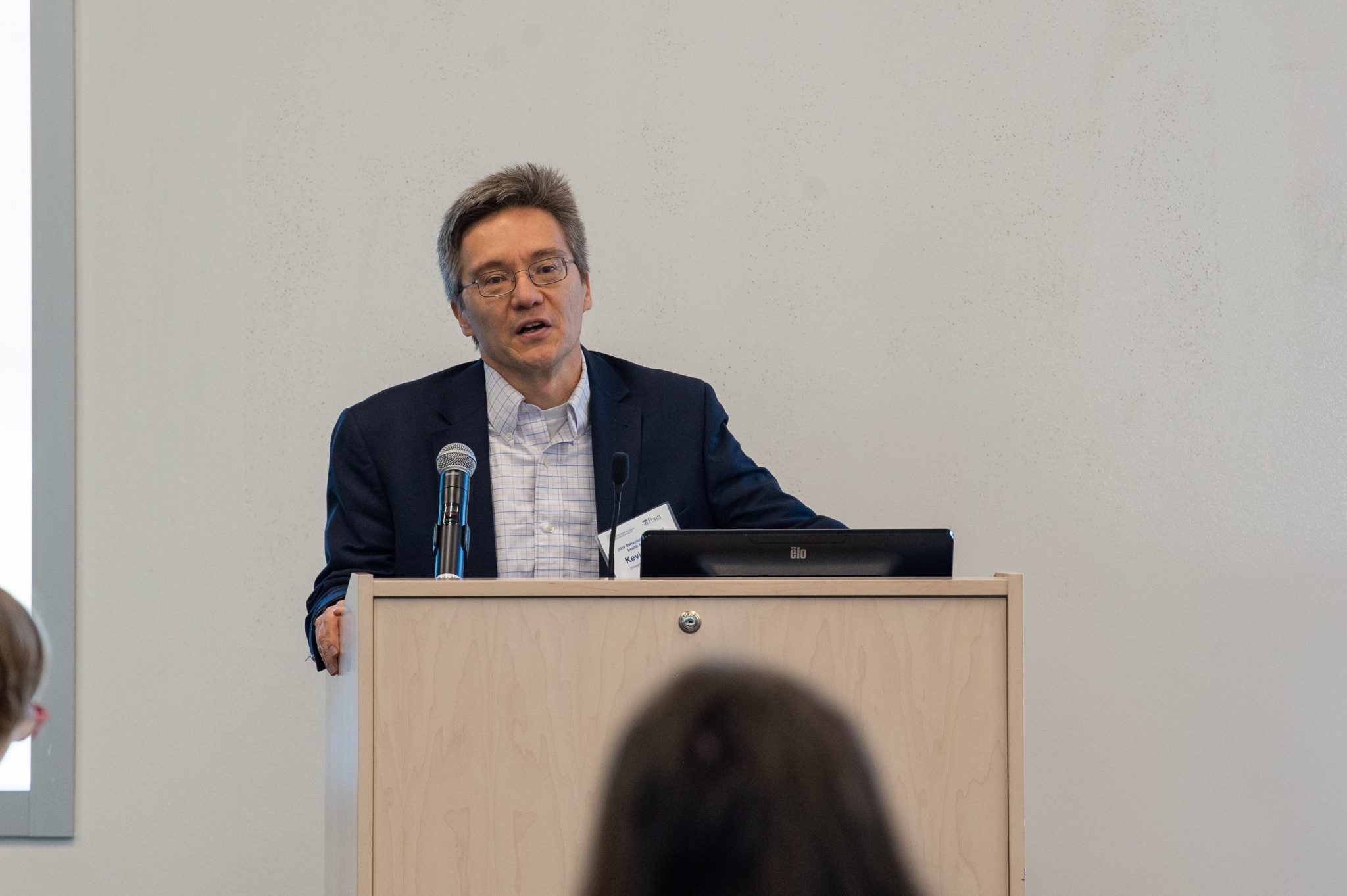
CHIBE’s symposium brings together top researchers and clinicians from around the country to discuss their latest research, develop new collaborations, and exchange ideas. The interdisciplinary nature of this symposium is part of the reason why this event is so special, Director of CHIBE Kevin Volpp, MD, PhD, said in his opening remarks.
This year’s event featured 14 research presentations on behaviorally informed topics as well as keynote presentations by Betsy Levy Paluck, PhD, Professor of Psychology and Public Affairs at Princeton and Deputy Director of the Kahneman-Treisman Center for Behavioral Science & Public Policy, and David Cutler, PhD, the Otto Eckstein Professor of Applied Economics at Harvard.
Dr. Paluck kicked off the symposium with a keynote addressing normative motivation and the case of sexual violence. One of her overarching points was that there is more to norms theory in behavioral science and in psychology than we are currently using to design behavioral interventions.
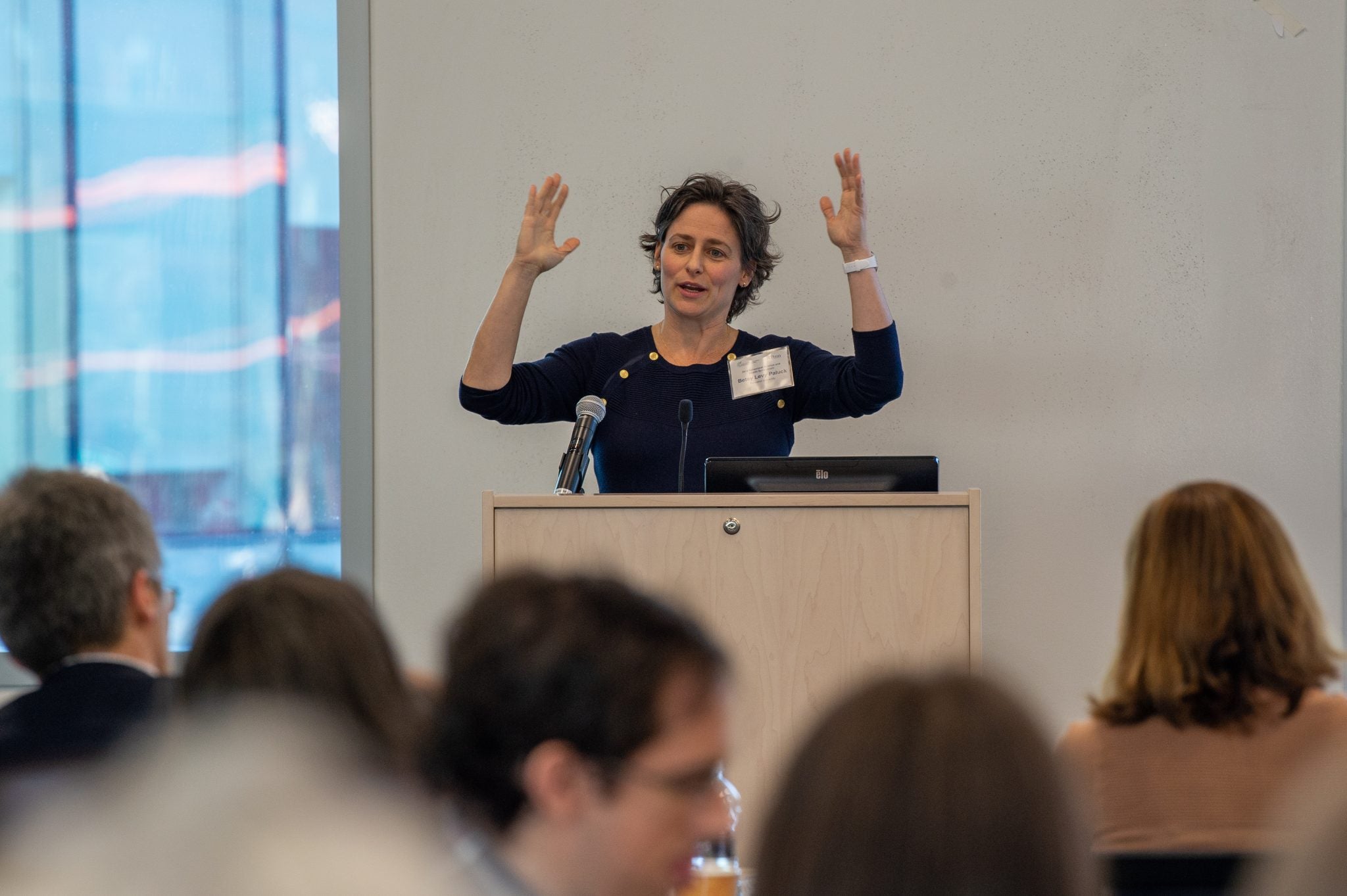
“My longer argument could distilled to: Nudges don’t work for all behaviors,” Dr. Paluck said, noting she’s not the first person to say this. “But one thing that is going a little bit underappreciated at the moment is that we’re thinking of social norms almost entirely as nudges. This is perhaps especially problematic when we’re thinking about health behaviors.”
One of the studies Dr. Paluck discussed involved Princeton’s club parties; she and her team discovered interesting findings on the effects of partygoers reciting certain messages about sexual consent prior to entering the parties. After running some experiments, they found differing results with each club; some showed a preference to the one club’s original language that defined consent in a more legal way, while students at another club gravitated to a more psychologically informed message that described consent in a normative way.
The symposium’s keynote address on Friday was from Dr. Cutler who spoke about the disparities in mortality rates based on socioeconomic status. Dr. Cutler noted that life expectancy has been declining for those on the lower end of the income distribution and that the gap in survival between people at the highest income and the lowest income is about 10-15 years.
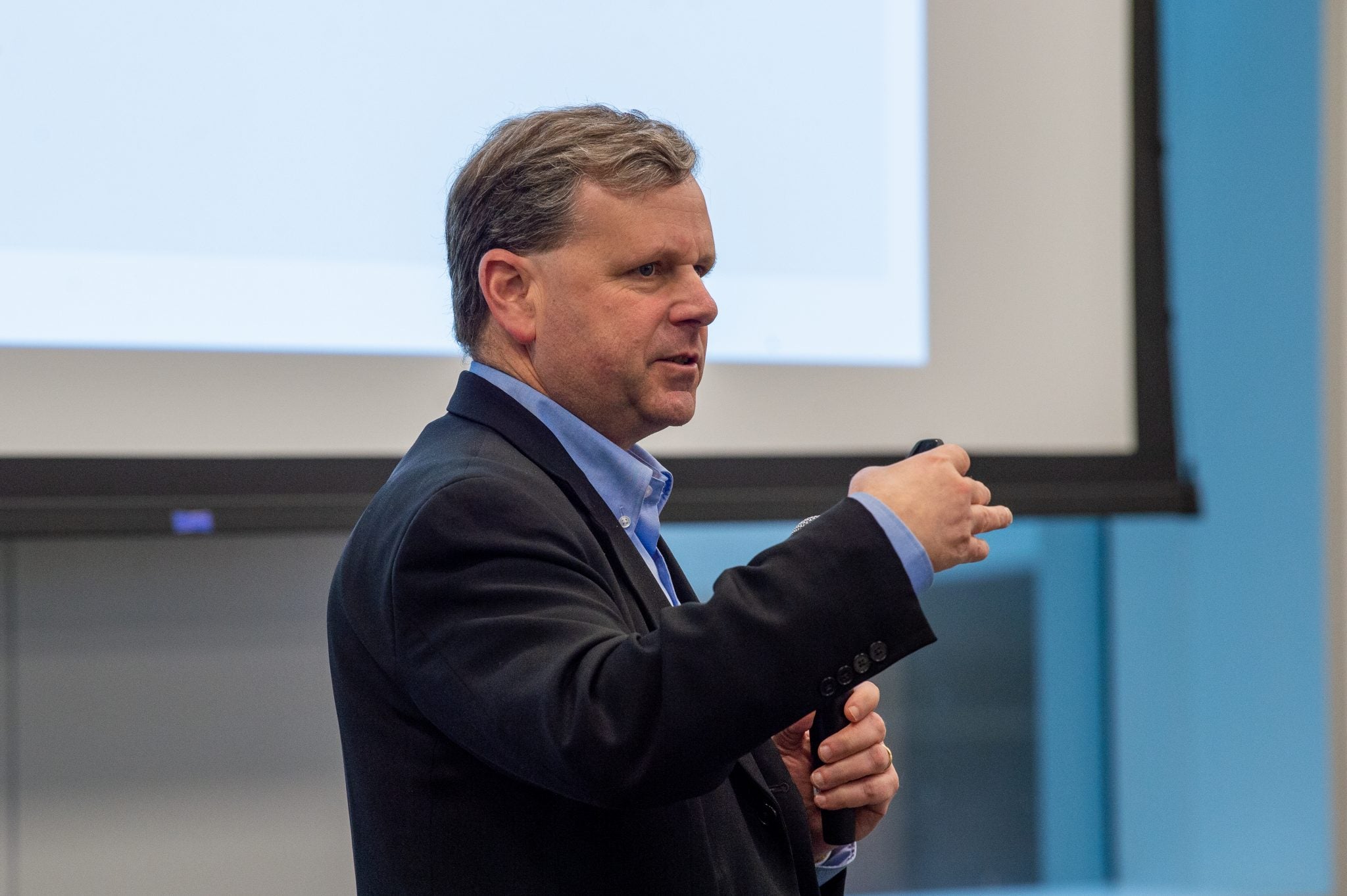
“At what income level is it the case that additional income is not associated improved survival?” Dr. Cutler asked, entertaining guesses from the crowd. “The answer is never.”
Individuals with less education report more functional limitations, more depression, and more pain compared with individuals with more education, he said. Dr. Cutler also led a discussion on how and why low socioeconomic status experiences are different based on where you live. In Boston, low-income people smoke less than low-income individuals do in Tulsa, OK. And while high-income Americans fair about as well as high-income Norwegians, low-income Norwegians are better off than low-income Americans.
“Aging has become a luxury good. It’s something you get to do well if you’re higher-income,” Dr. Cutler said. “What could we do about that?”
In addition to the two keynotes, the symposium welcomed researchers from across the country to share their work:
Justin Sydnor, PhD, from University of Wisconsin-Madison, described how preferences for commitment are revealed in field experiments with members of a gym.
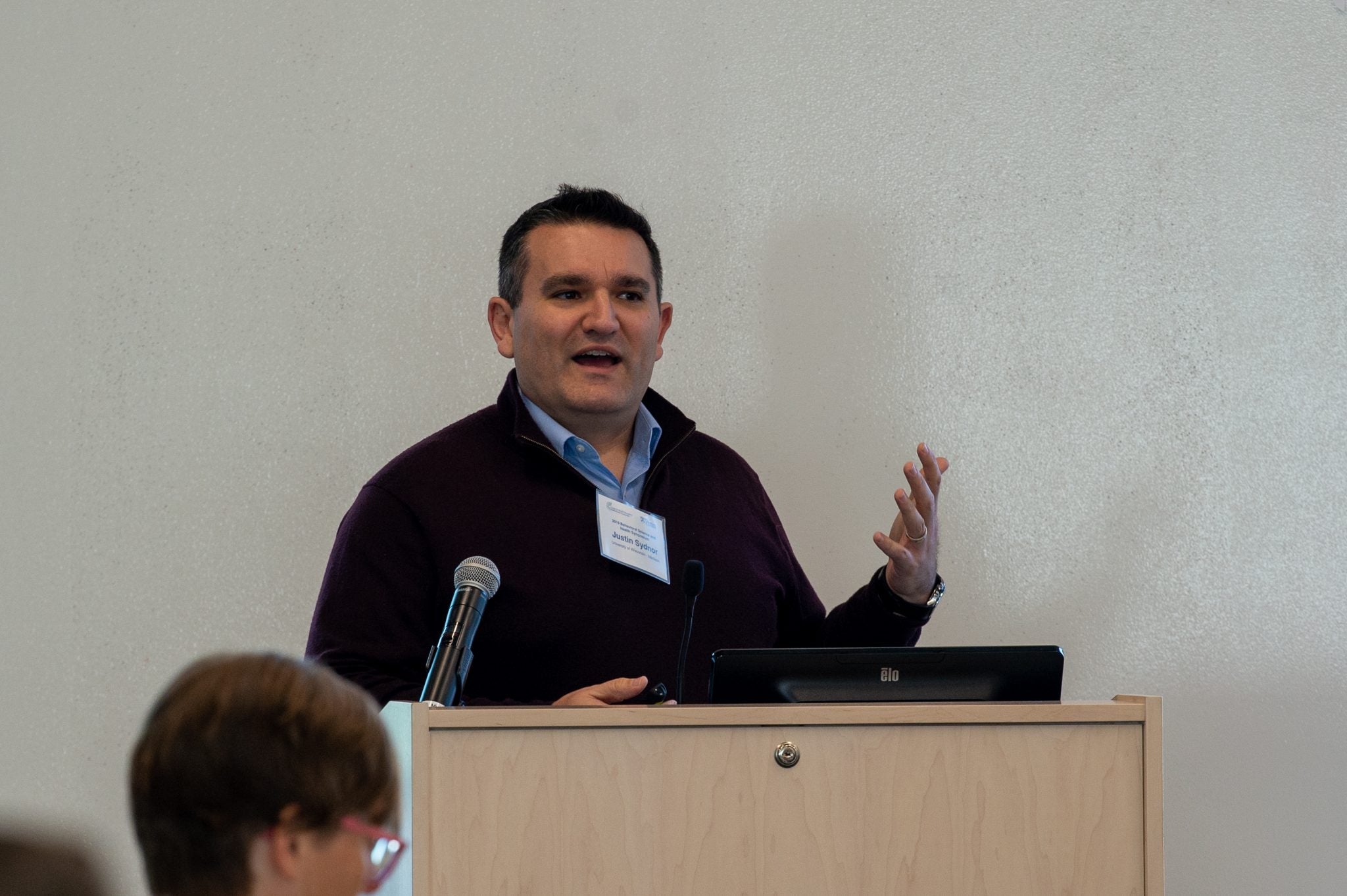
Abigail Sussman, PhD, MA, from University of Chicago, shared how individuals modify their diet based on consuming “exceptional” foods (e.g. birthday cake).
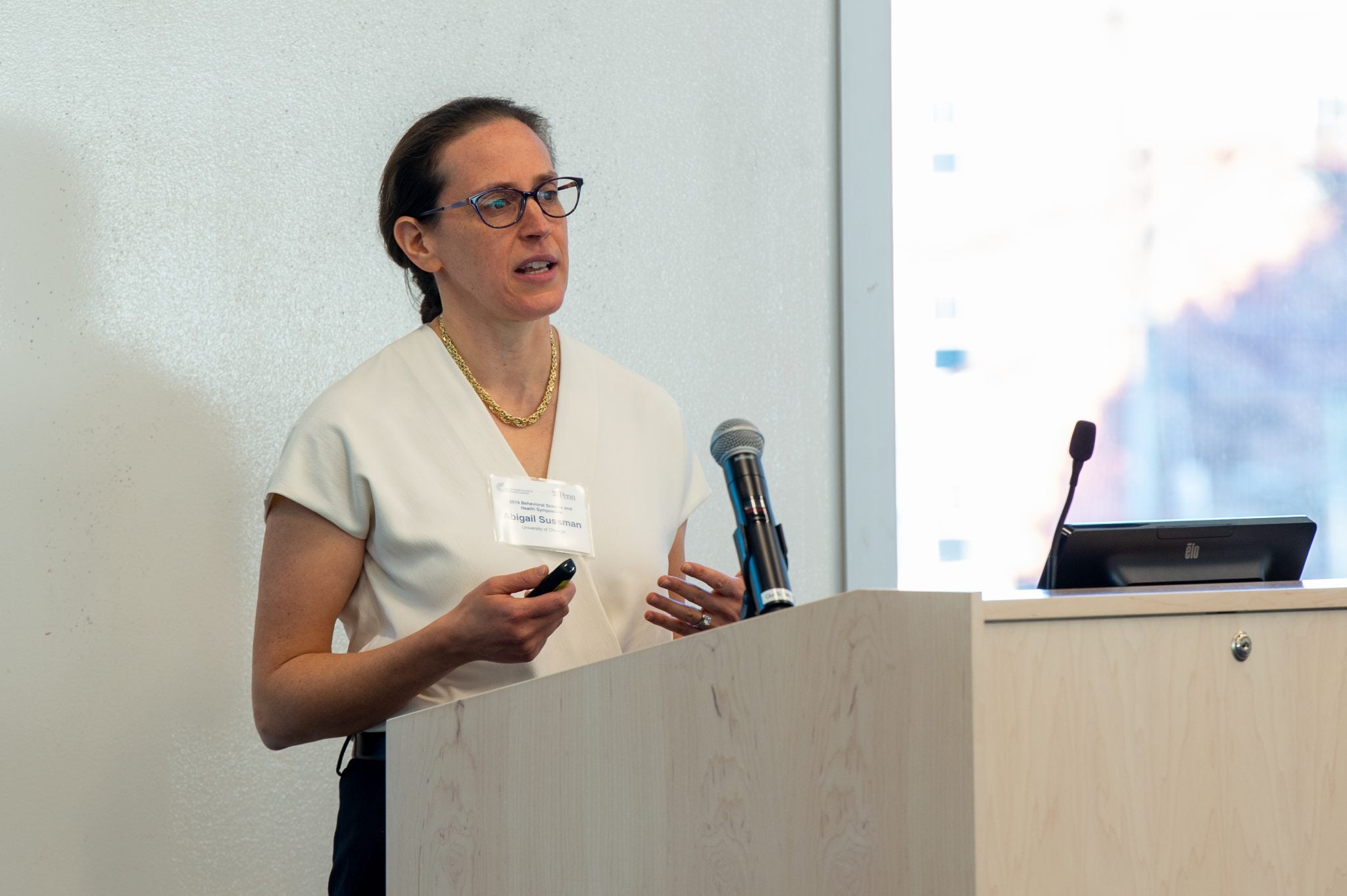
Kit Delgado, MD, MS, from the University of Pennsylvania, shared interesting results from a national usage-based auto insurance program that used social comparison feedback and financial incentives for reducing cellphone use while driving.
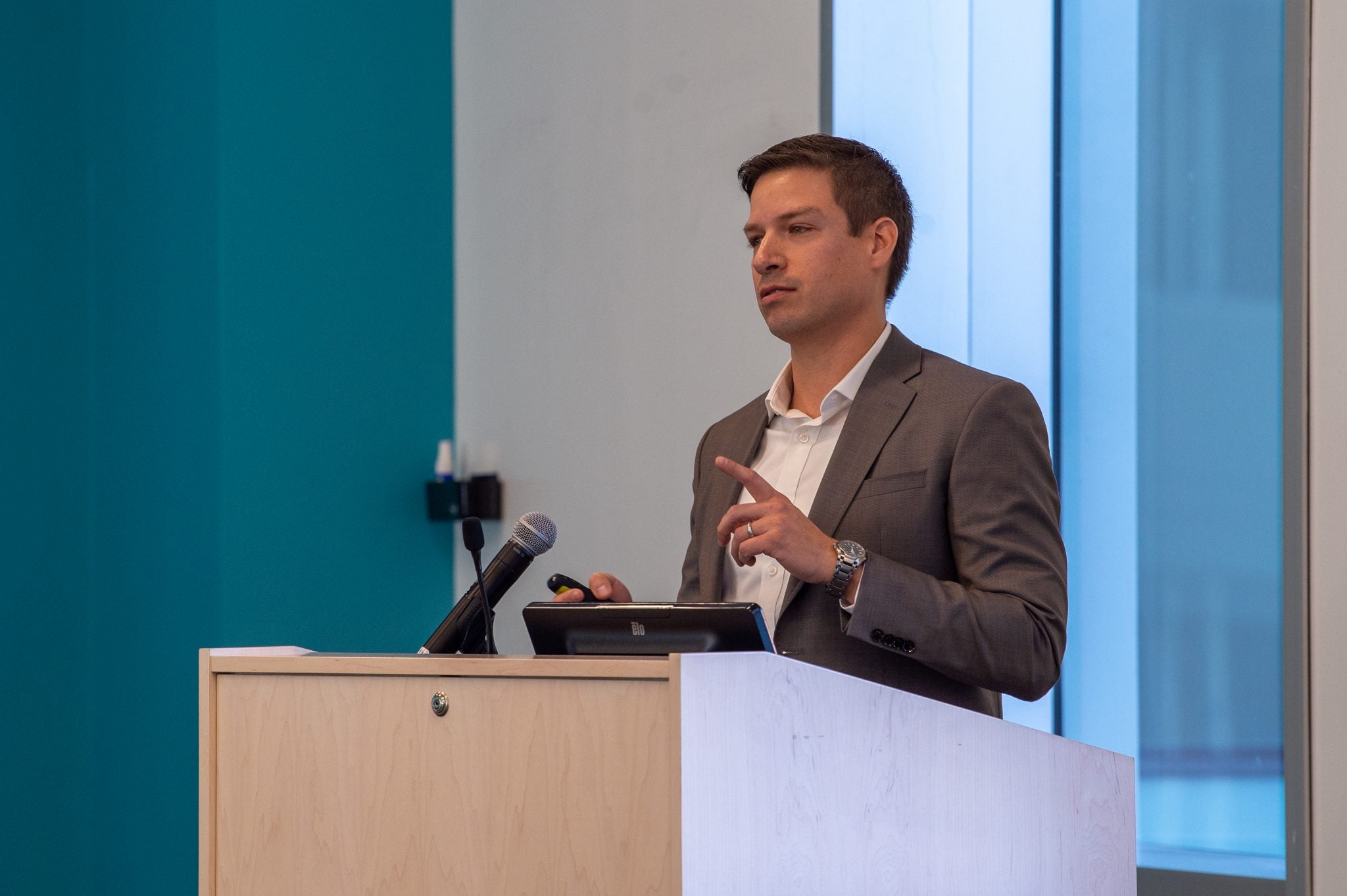
Deepika Mohan, MD, from University of Pittsburgh Medical Center, demonstrated how interactive video games may improve physician heuristics in trauma triage.
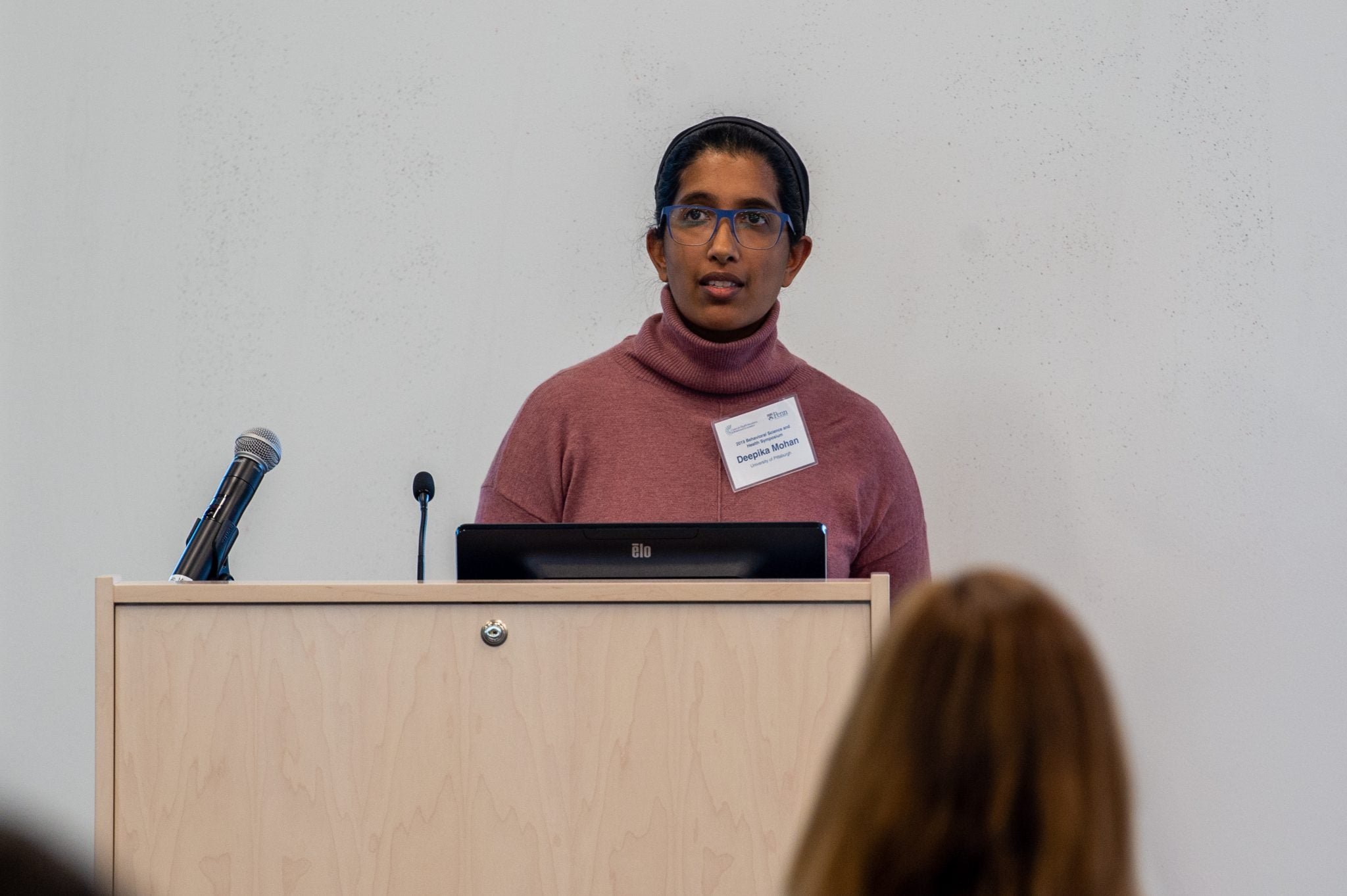
Hunt Allcott, PhD, MS, from New York University, discussed the behavioral welfare evaluation of new products such as e-cigarettes.
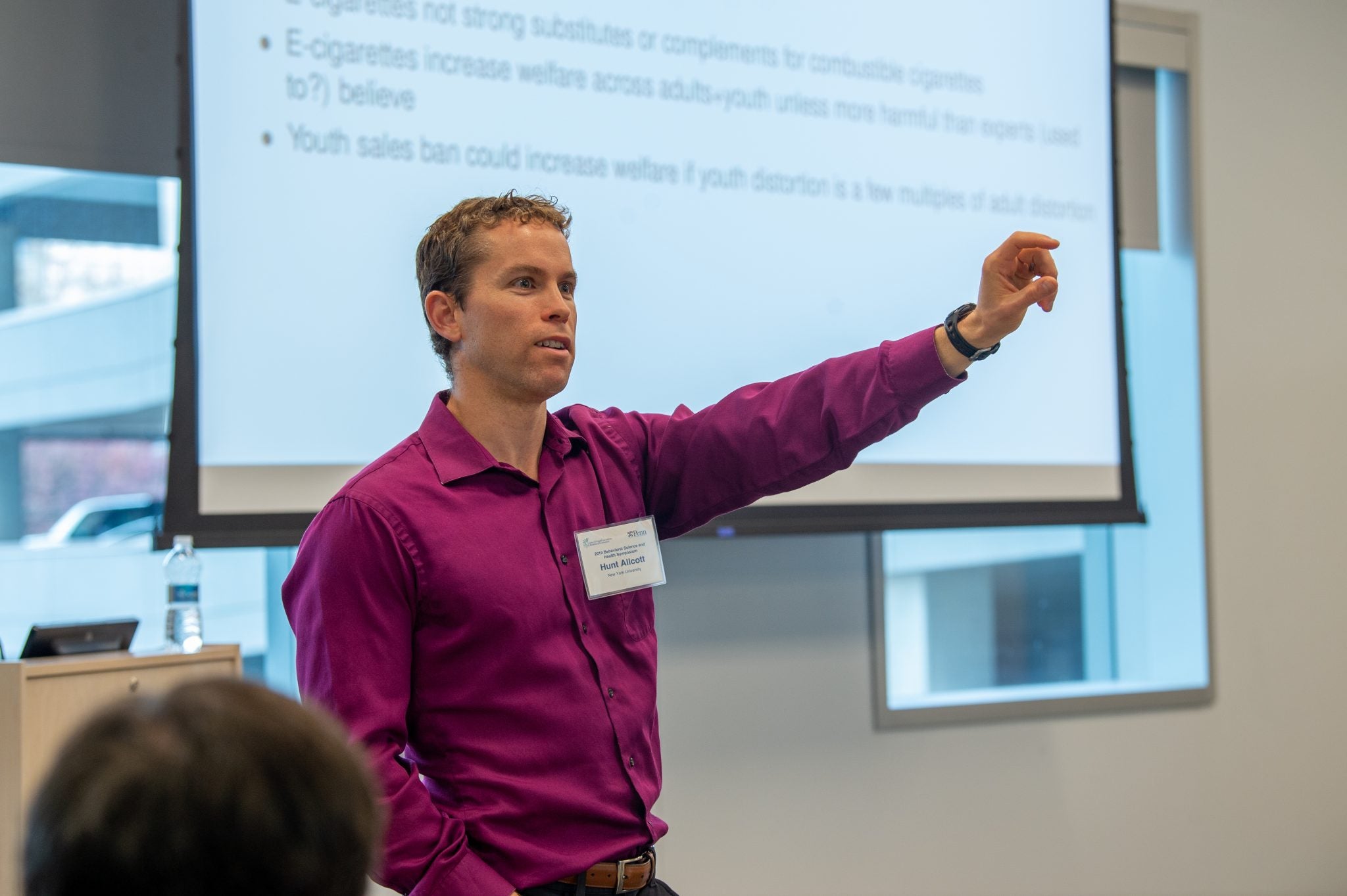
Jason Abaluck, PhD, from Yale University, talked about the health effects and choices across managed care plans.
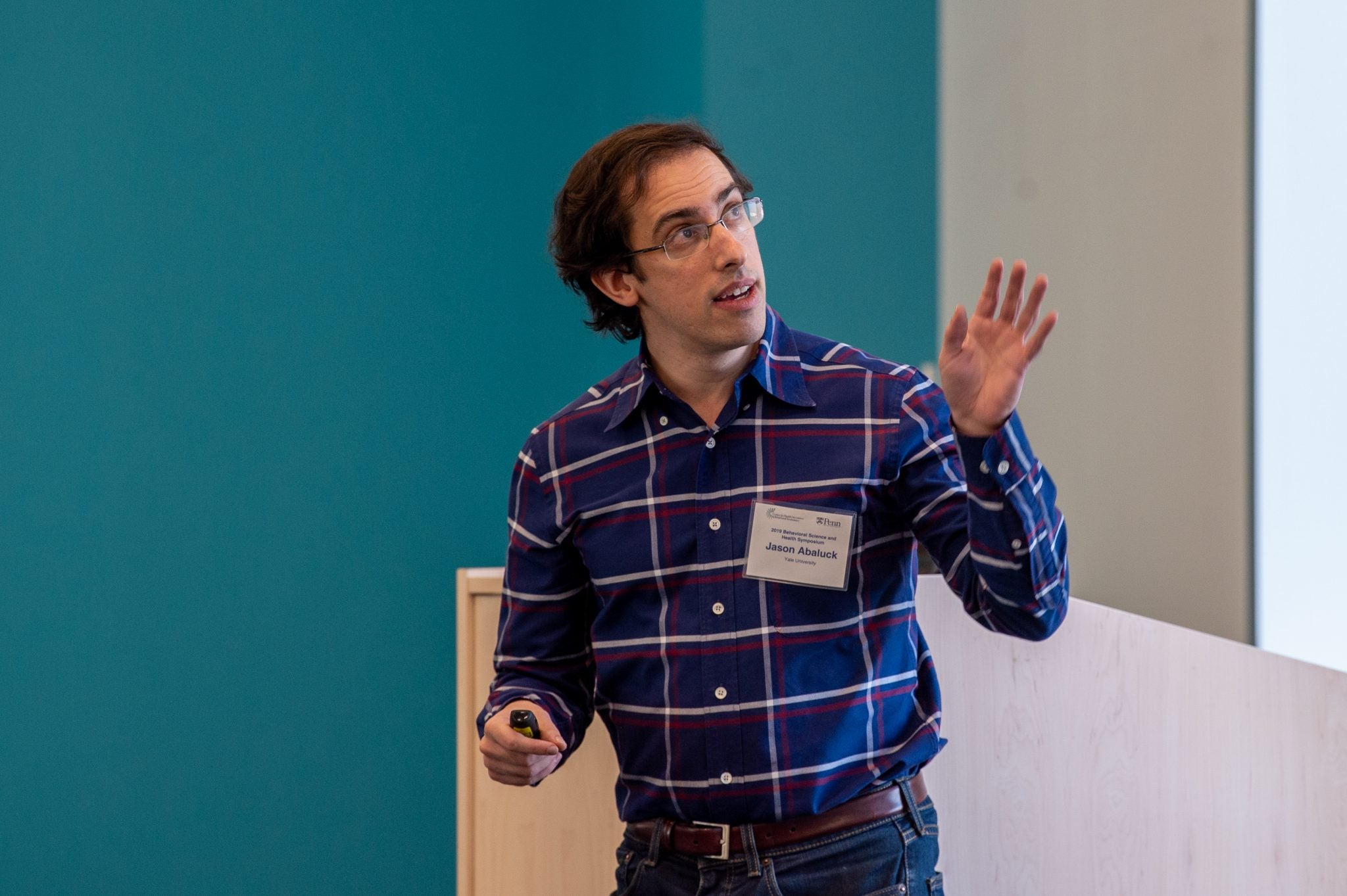
Ayelet Fishbach, PhD, MA, from University of Chicago, looked at how food restrictions like allergies, as well as reports of loneliness, are on the rise and explored whether these two epidemics are related.
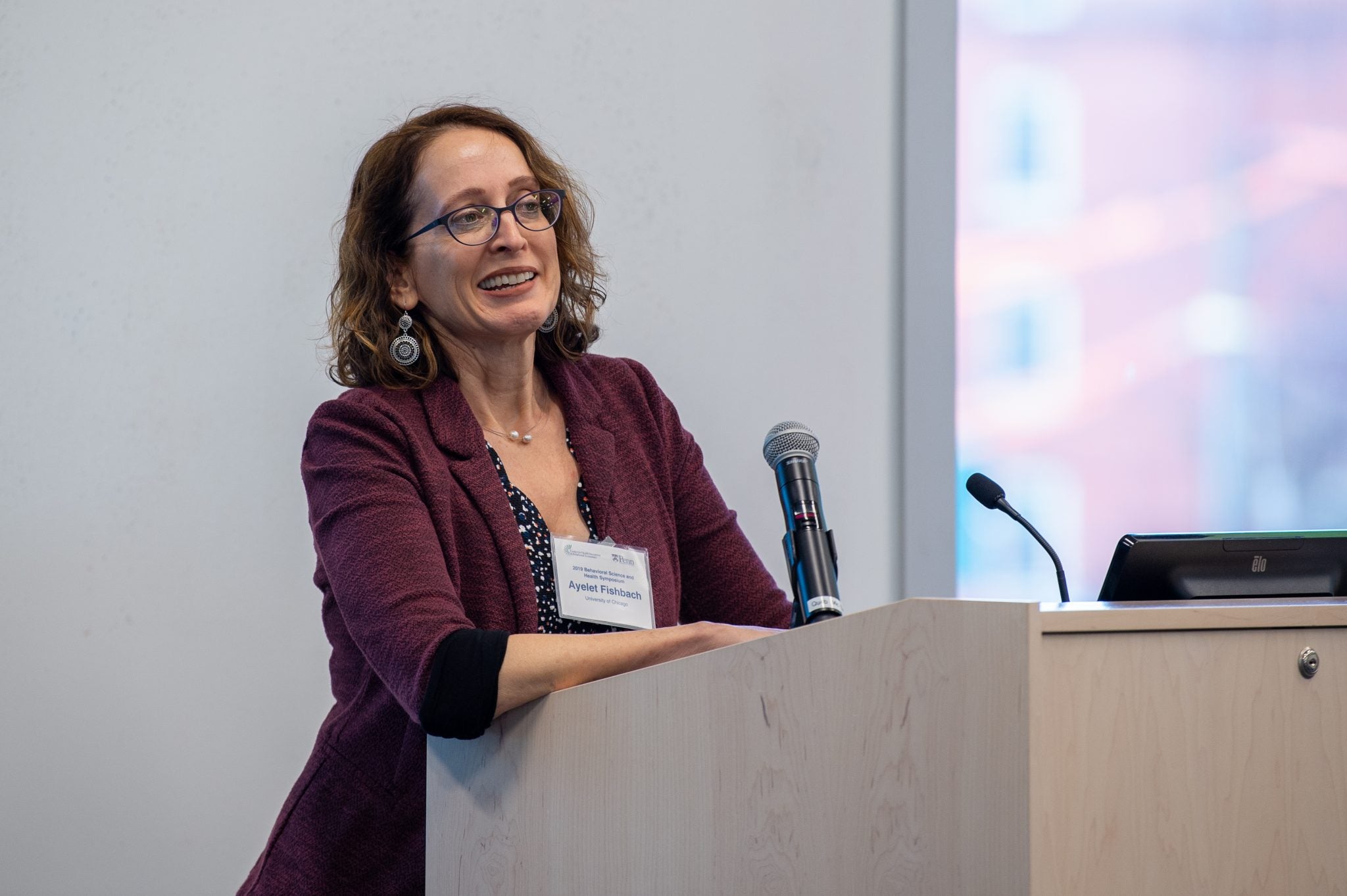
Sally Sadoff, PhD, MA, from University of California San Diego, explored how relevant dynamic inconsistency is for consumption smooth and food insecurity.
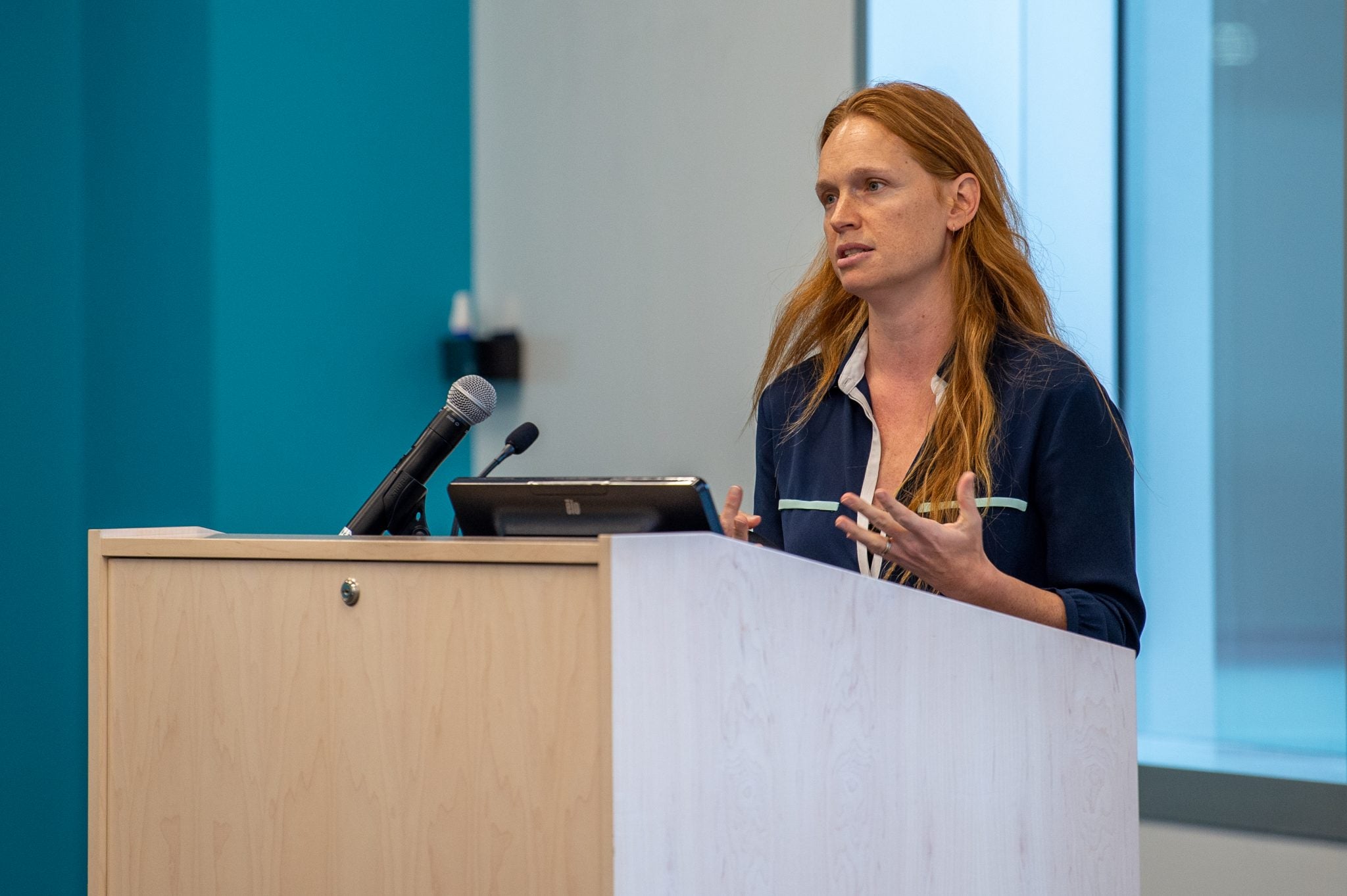
Daniella Meeker, PhD, MPH, from University of Southern California, looked at nudging improvements in interprofessional consultations.
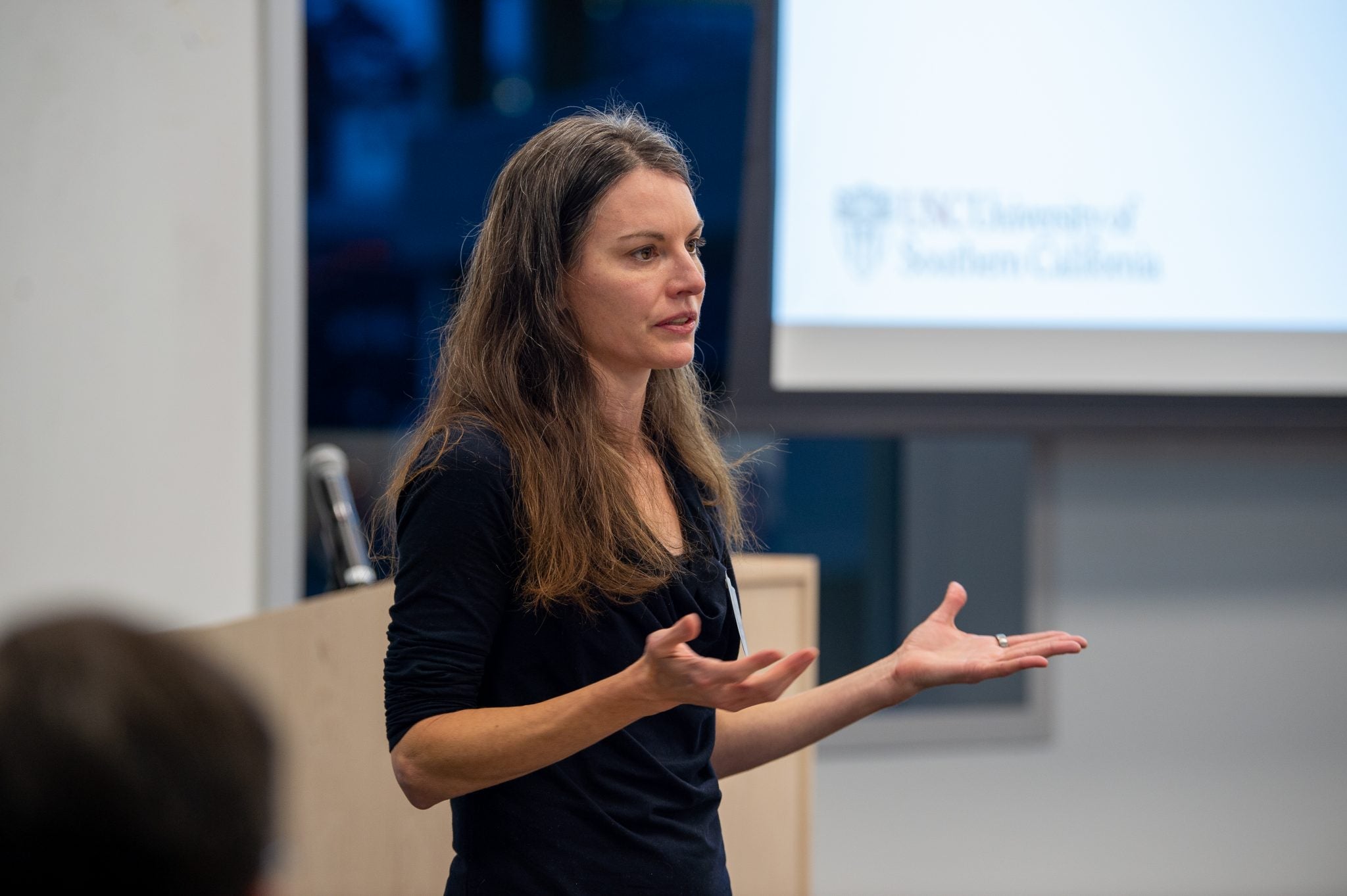
Sebastian Linnemayr, PhD, MA, from RAND Corporation, examined cognitive scarcity induced by concerns about poor health.
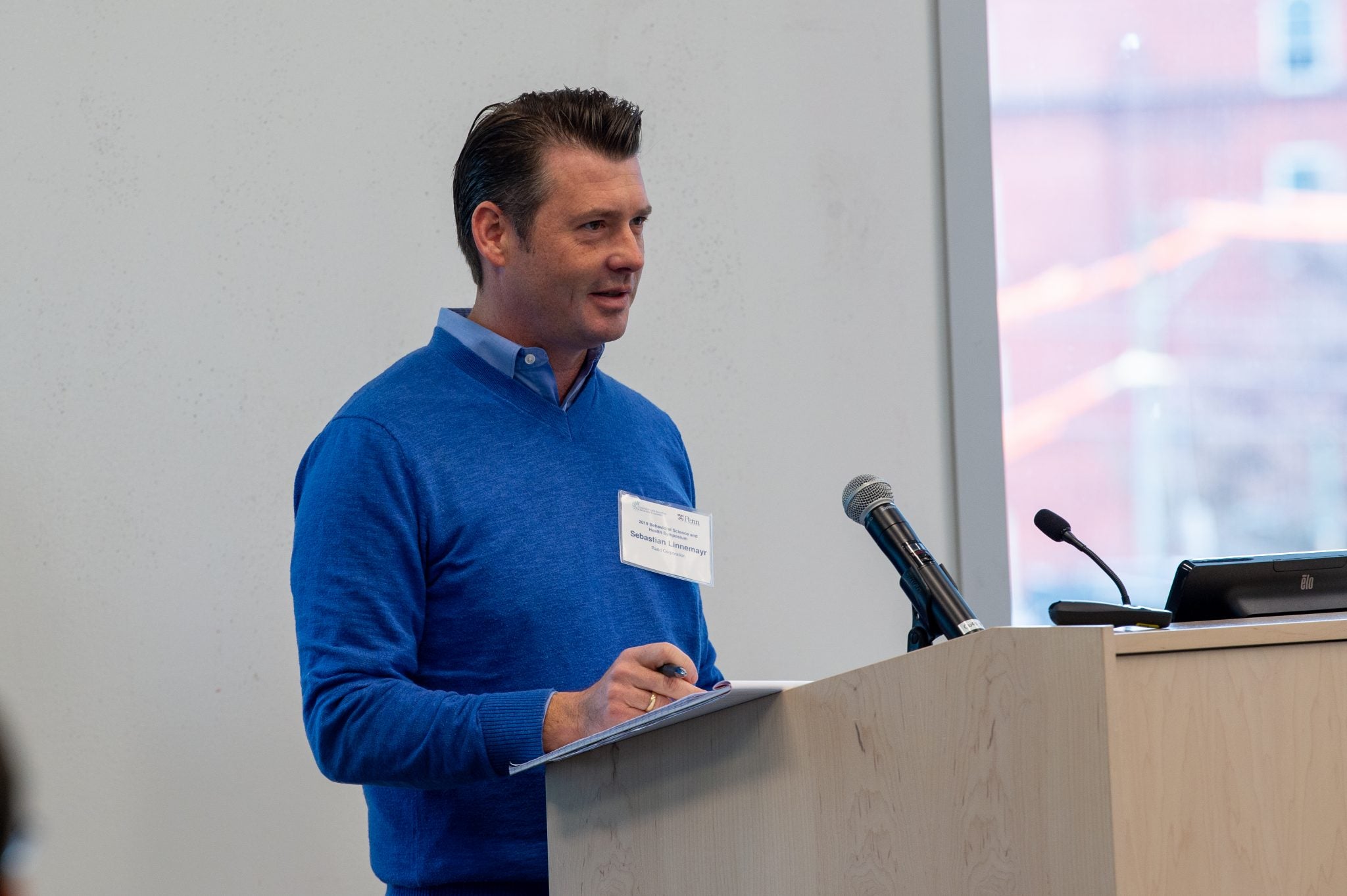
Silvia Saccardo, PhD, from Carnegie Mellon University, explored how to improve sleep habits among undergraduates using financial incentives, cues, and feedback.
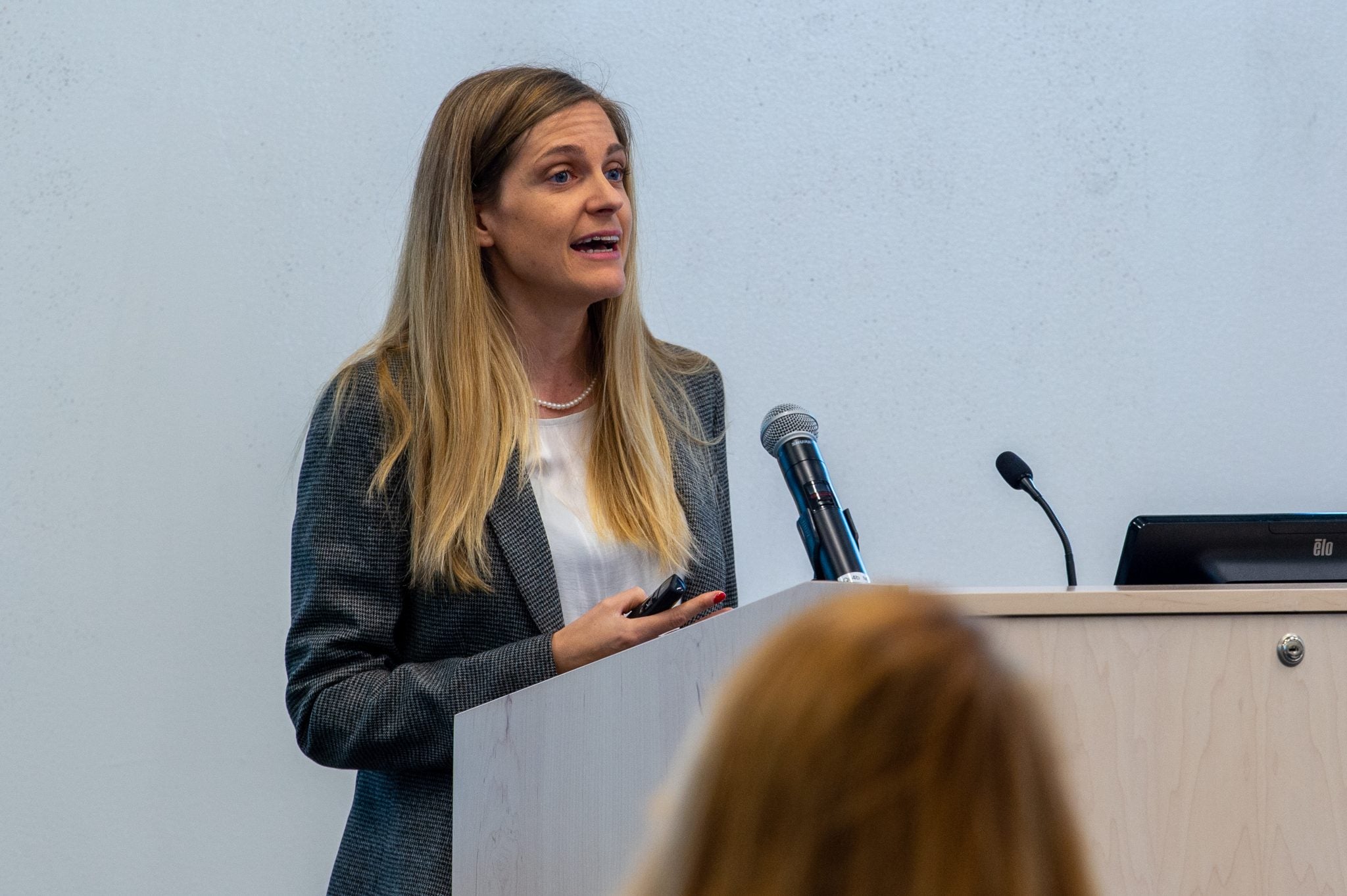
Michelle Meyer, PhD, JD, from Geisinger, looked at the A/B effect: objecting to experiments that compare two unobjectionable policies or treatments.
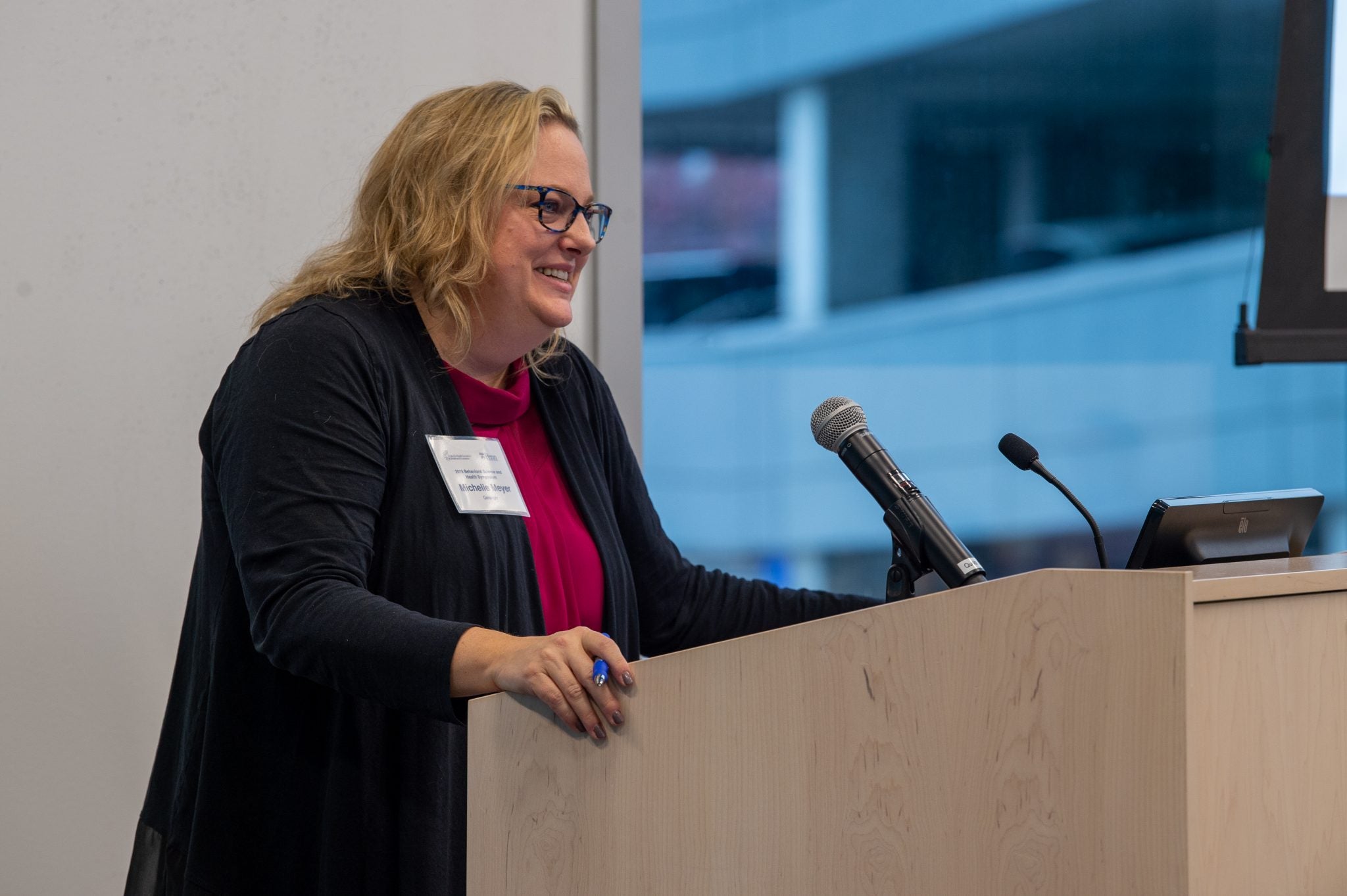
Uri Gneezy, PhD, MA, from University of California San Diego, examined incentive-based interventions related to exercise.
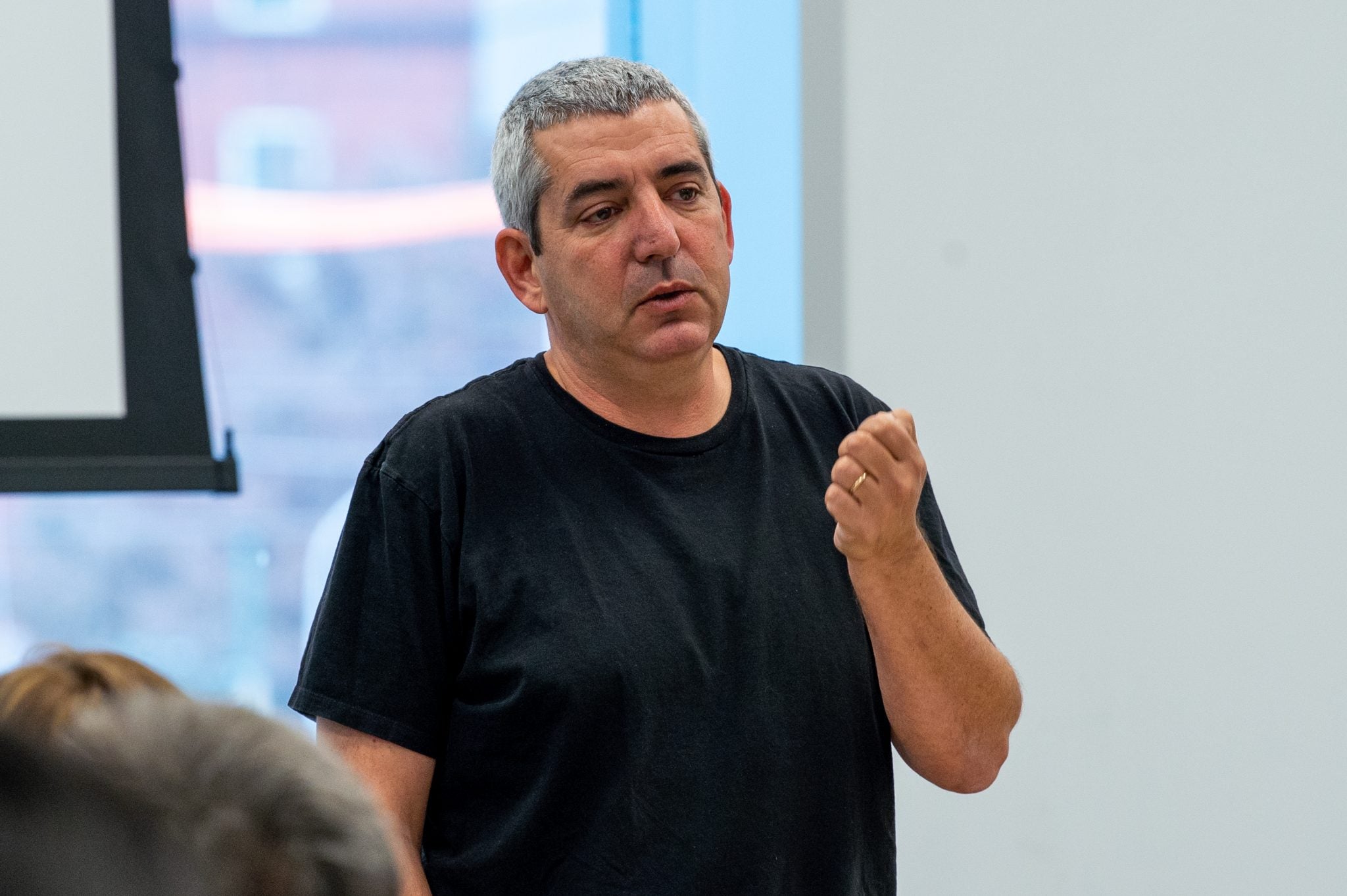
Lisbeth Nielsen, PhD, MA, from the National Institute on Aging, talked about the NIH Science of Behavior Change Program’s current and future directions.
